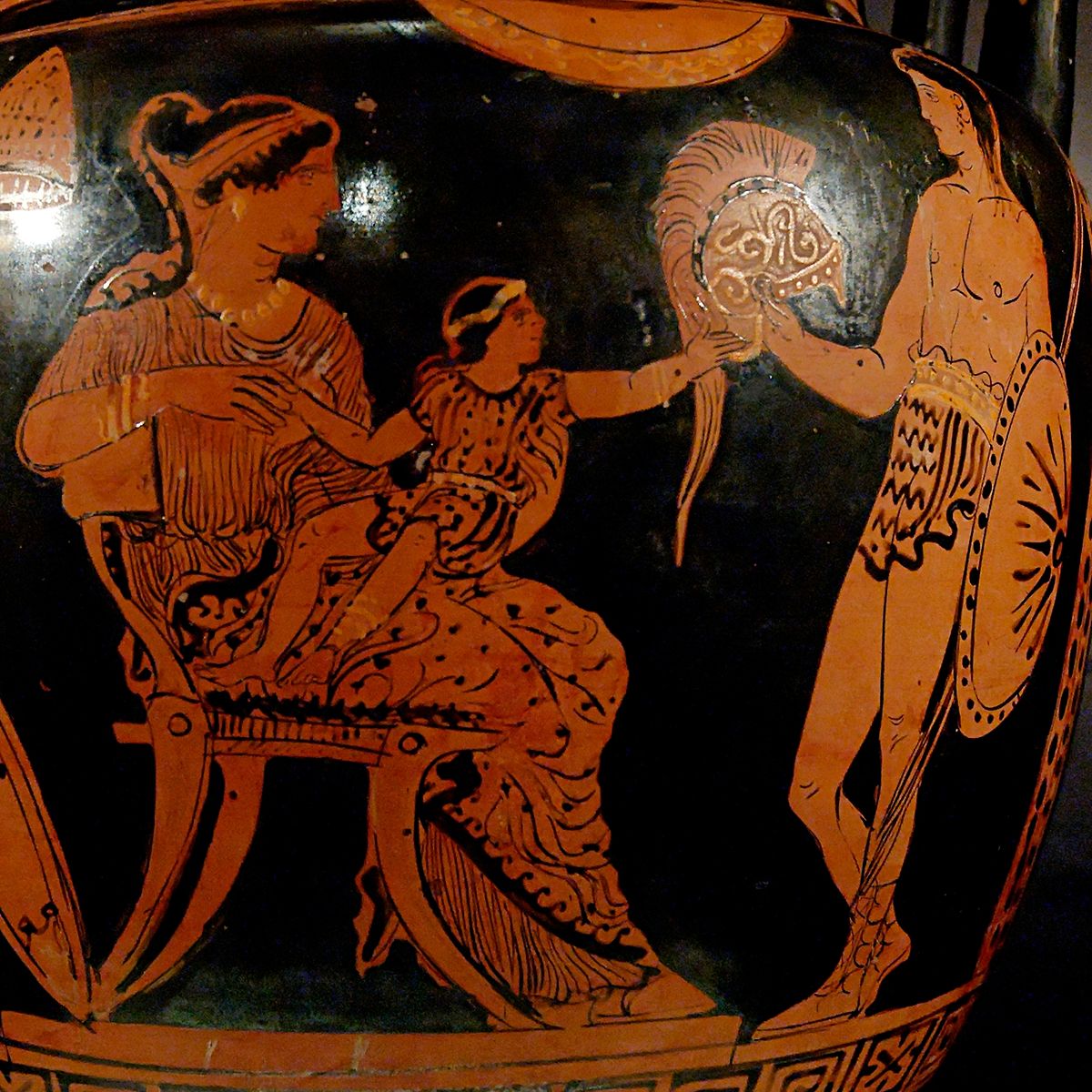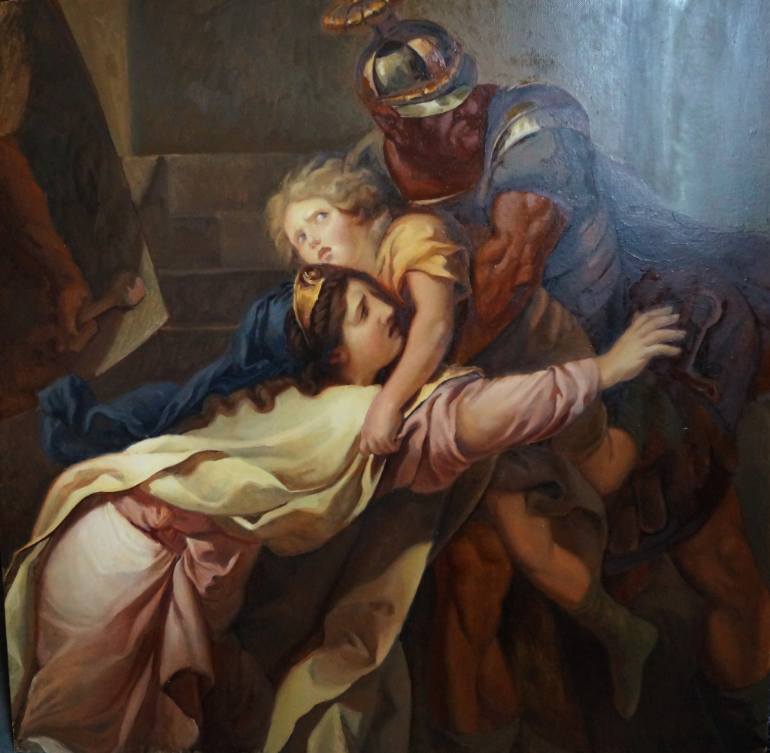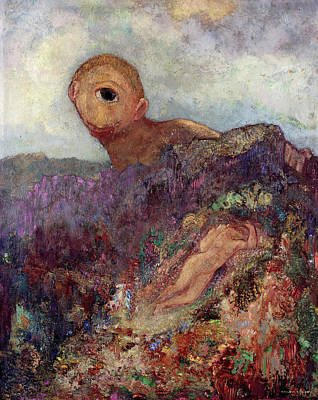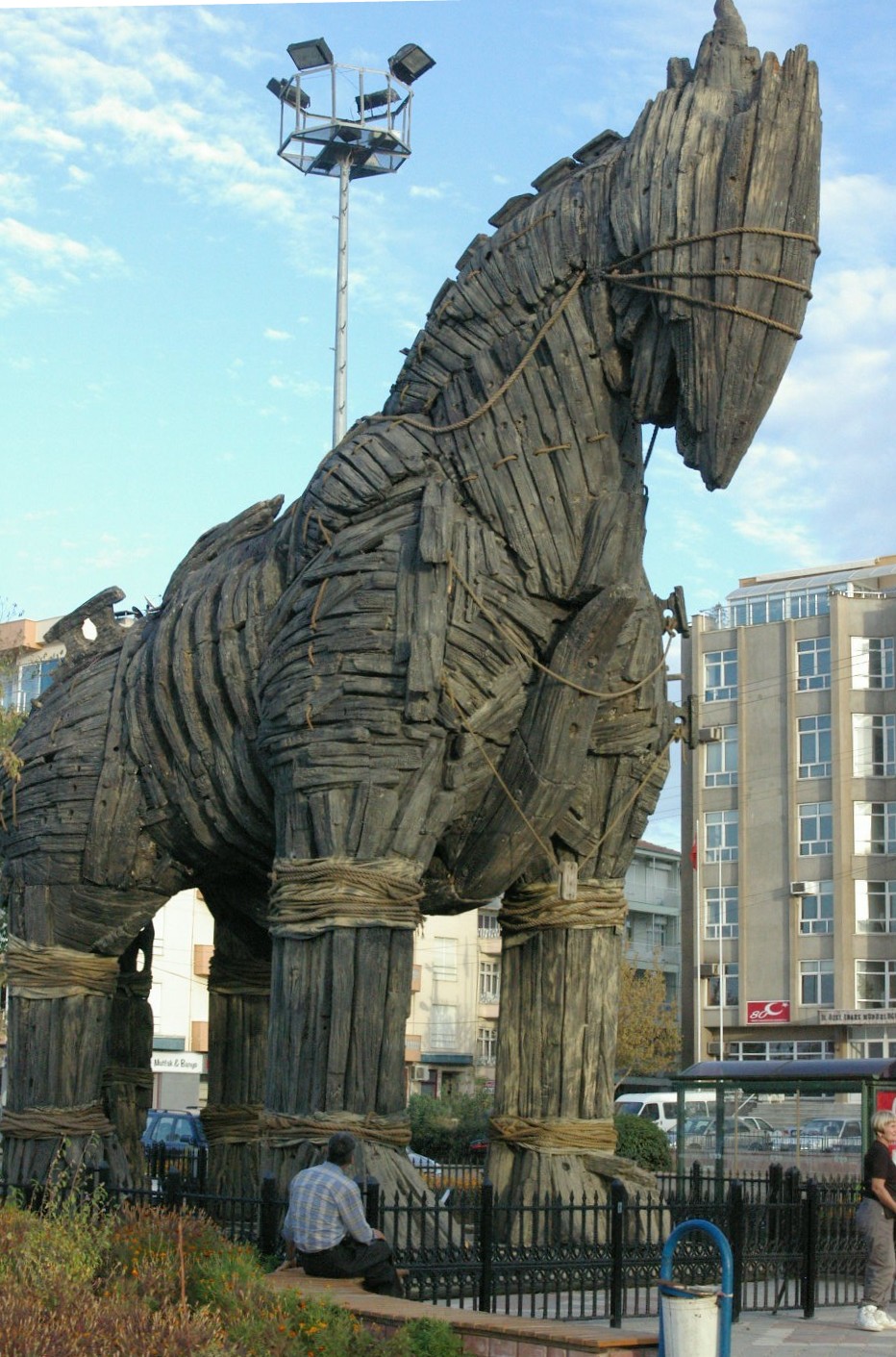
Trojan Horse (Hisarlik, Turkey)
Register to vote in Arizona online (voting eligibilty for college students; Arizona dates & deadlines)

Trojan Horse (Hisarlik, Turkey)
Register to vote in Arizona online (voting eligibilty for college students; Arizona dates & deadlines)
Aeneid 1 (cont.)
L: Livia (wife of Augustus) as Pietas (22-3 CE)
- Aeneas as pius hero of Roman pietas (introspective hero of responsibility/duty, e.g. secret grief for lost comrades, 1.220-3); traumatized hero
Aeneid 1.94-9 (Aeneas’s first appearance; cf. Odyssey 5)
“Three and four times fortunate, all you who died
by Troy's high walls under your fathers' gaze!
O Diomedes, bravest of the Greeks! [cf. Iliad 5.311ff.]
I wish I'd fallen on Troy's fields, my blood spilled
by your strong right hand, where fierce Hector perished
on Achilles' spear, and huge Sarpedon too."
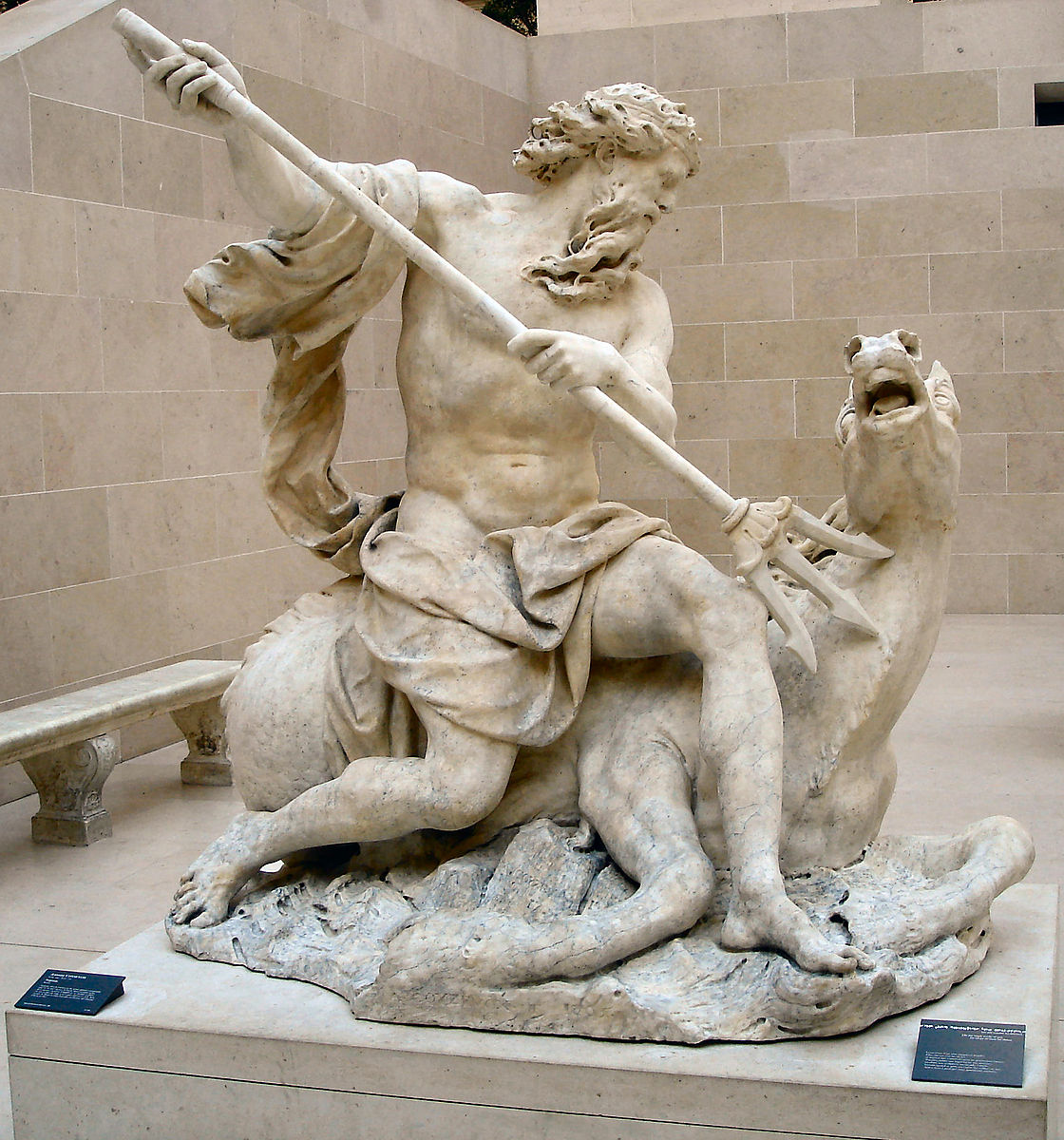
Coysevox, Neptune (1705)- Aeneid's first simile: Neptune & winds ("Just as riots often fester in great crowds . . . ", 1.148ff.)
- Aeneas as spectator at Juno's temple in Carthage (Dido's construction project): ekphrasis
Aeneid 1.459-63 (bearing witness to Trojan suffering & loss; compensation through art, memory, memorialization)
He stopped in tears: "Achates, what place on earth,
what land isn't steeped in what we've suffered? Look:
the world weeps, and mortal matters move the heart. [sunt lacrimae rerum, lit. "there are tears for things"]
Let go your fear. This fame will bring safety."
Aeneid 1.485-8 (Hector's death)
Aeneas groaned deep in his heart, when he saw
the spoils, the chariot, the very body of his
friend, and Priam stretching out defenseless hands.
He saw himself as well, mixed in with the Greeks . . .
- Dido and Aeneas: commonalties (Venus's tale to Aeneas, 1.314ff.)? Tyre, Sychaeus, Pygmalion?
- Venus' plan for Dido (1.657ff.)?
Laocoön & sons (1st Century BCE Roman copy of Greek sculpture, ca. 200 BCE; cf. Aeneid 2.212ff.)
Aeneid 2-3: Aeneas as narrator (cf. Odysseus among the Phaeacians, Odyssey 9-12)
- Troy's Fall (lost literary sources: post-Homeric epic cycle, Greek & Roman tragedies)
- Aeneid 2: Aeneas's (re)traumatizing memories: "Queen, / you ask me to relive an anguish beyond words: / how the Greeks destroyed Troy's kingdom and her wealth. / I saw the piteous events myself—I played / no minor part" (2.2-6); interested narrator, reliable narrator?
- Sinon's deceptive "refugee" narrative (2.57ff.) wins over Trojans; "We were captured by forced tears / and falsehoods . . ." (2.196ff.; the power of performance & fiction)
Troy's devastation in Troy (2004): https://youtu.be/Td1uPq9K--E
Ukranian man fleeing his shop (Kharkiv, Ukraine, 2022)
PBS POV documentary "Return to Homs" (Syria, 2015): https://www.pbs.org/pov/watch/returntohoms/
[Film scenes of the destruction of cities in wartime:
https://www.youtube.com/watch?v=TU2tivY3pFk (Full Metal Jacket, 1987)https://www.youtube.com/watch?v=1BCbd7EFczg (Saving Private Ryan, 1998)]
- (im)mobolized Aeneas's narrative of witnessing Troy's fall (cf. traditional epic hero)
reported supernatural guidance & warnings > hero of destiny:
(1) Hector’s ghost (2.270ff.): "build . . . great walls"; ancient commentator Servius' remarks on Aeneas's ignorance of Hector's wounds (cf. Dido's dream of Sychaeus; Iliad 24)
(2) Venus, after Priam's death (2.588ff.): reminder of family, divine vision ("Escape, my son, and give up your efforts")
(3) Creusa’s ghost (2.771ff.)
(4) Iülus’s flaming head & shooting star (2.680ff.)
*epic dreams, visions, prophecies in the Aeneid > human choice & interpretation (characters & readers)*
Priam stands by as Cassandra is raped (Pompeii, 1st century CE; cf. Aeneid 2.402ff.)
- Aeneas's limited success in battle (apostrophe to Troy's ashes: "I swear by you that as you fell I didn't run / from risk or Argive spears", 2.432-3); "mixed in with the Greeks" (2.396) as victims of Trojan fire
- Aeneas on roof of Priam’s palace observes Pyrrhus (Neoptolemus), son of Achilles; isolated spectator
Aeneid 2.564-7
"I turned to see which men were left.
They'd all abandoned me: exhausted and despairing,
they'd fallen off the roof or stumbled into flames.
I was the only one of them alive."
Pyrrhus kills Priam (Attic Amphora, 520-510 BCE)
- death of Priam at altar of household gods
Aeneid 2.534-44 (Priam to Pyrrhus following death of Polites)
He shouts in fury: "Pyrrhus!
For this murder, for all your outrages
I hope the gods pay you as you deserve,
if there's any piety in heaven
that cares about such things—forcing me to see
the slaughter of my son, fouling a father's eyes!
Achilles, whom you claim as father in your lies,
was no such enemy to Priam. He had respect
for the rights of supplicants, for their trust
in him! He gave Hector's pallid corpse
for burial, and let me go back to my throne."
- Priam's death – Aeneas reminded of family, esp. Anchises
- Venus appears (divine signs), departure from Anchises' house (2.707ff.); Creusa
Parody of Aeneas' flight from Troy (Pompeii, 1st century CE)
- Anchises, Iülus, Penates leave Troy: “No hope of help. / I gave up, lifted Father, and struck out for the hills” (2.803-4); symbolism?
Aeneid 3: wanderings, starts & stops, pull of known past vs. fear of unknown future; overlap with Odysseus’s journey, less fantastical (few monsters & adventures), more historical places (Troy > Aegean Sea > Greece > Sicily > Carthage/Italy), e.g. Actium (3.274ff.) & aetiology ("explanation") of Augustus’s Actian Games ("Trojan games")


